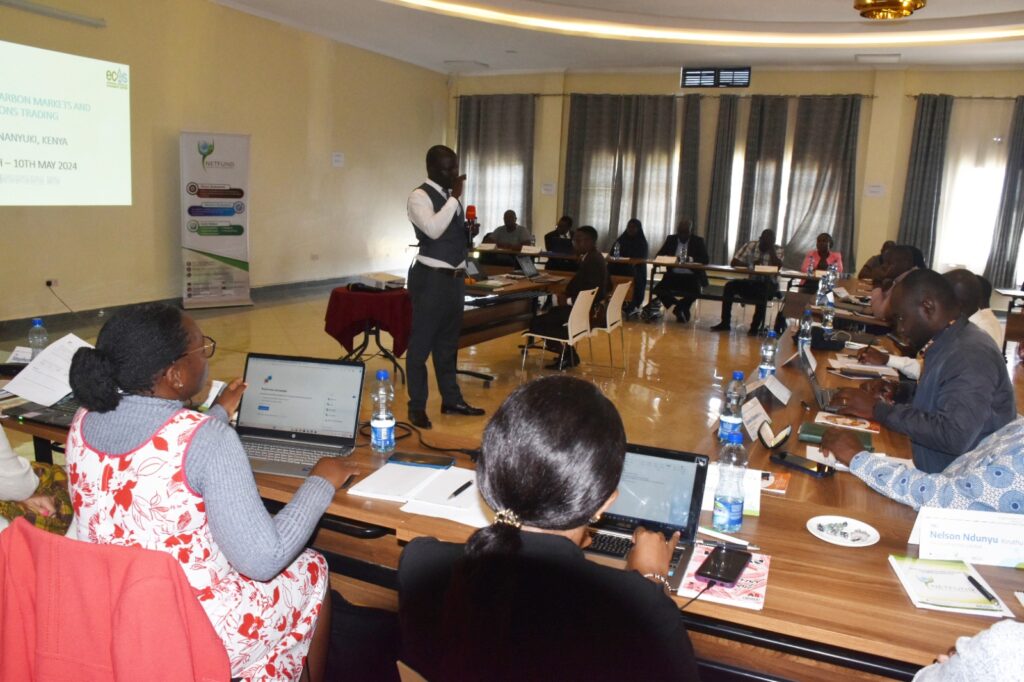
CONCEPT NOTE
INTERNATIONAL TRAINING ON MANAGING HUMAN RESOURCES IN THE POST-COVID-19 ERA.
BACKGROUND
The COVID-19 pandemic has drastically altered how businesses operate, accelerating changes in workplace dynamics, employee expectations, and HR management strategies. The traditional HR approaches that once guided workforce planning, talent management, and employee engagement are no longer sufficient in today’s rapidly evolving work environment. Organizations must now adopt flexible, technology-driven, and people-centric HR strategies to build resilient and sustainable workplaces in the post-pandemic world.
The pandemic highlighted the critical role of HR in ensuring business continuity, maintaining employee well-being, and adapting to new work models such as remote and hybrid work. As organizations recover and transition into the post-COVID-19 era, HR professionals must be equipped with the knowledge, tools, and skills to navigate challenges such as:
- Managing a remote and hybrid workforce while maintaining productivity and engagement.
- Reskilling and upskilling employees to meet evolving business and technological demands.
- Implementing HR digital transformation through AI, automation, and data analytics.
- Prioritizing employee well-being and mental health as a key HR function.
- Redesigning workplace policies to support flexibility, diversity, and inclusion.
- Strengthening crisis preparedness to handle future disruptions effectively.
This course, offered by the Environmental Capacities and Sustainability (ECAS) Institute, is designed to help HR professionals, business leaders, and policymakers redefine human resource management in the new normal. By integrating sustainability, digital transformation, and resilience strategies, participants will learn how to create an agile, inclusive, and future-ready workforce that aligns with both business goals and sustainability principles.
Through expert insights, real-world case studies, and interactive learning, this course equips participants with practical solutions to address post-pandemic HR challenges and optimize workforce performance in the years to come.
OBJECTIVES OF THE TRAINING
By the end of this course, participants will be able to:
- Understand the long-term impacts of COVID-19 on HR practices and workforce management.
- Develop strategies for managing remote and hybrid work models effectively.
- Strengthen employee well-being, mental health, and resilience.
- Implement HR digitalization and technology-driven solutions.
- Redefine talent acquisition, performance management, and workforce planning post-pandemic.
- Ensure workplace safety, crisis management, and business continuity planning.
- Align HR strategies with sustainability and ESG principles in the new normal.
WHAT YOU WILL LEARN
Participants will gain insights into:
- The evolving role of HR in the post-COVID-19 workplace and emerging trends.
- Best practices for managing remote, hybrid, and flexible work arrangements.
- Strategies for employee engagement, motivation, and mental well-being in the new work environment.
- Workforce planning, reskilling, and upskilling approaches for the future of work.
- HR digital transformation, AI, and automation in employee management.
- Crisis preparedness and business continuity strategies for HR professionals.
- Sustainability, DEI (Diversity, Equity, and Inclusion), and ESG principles in HR post-pandemic.
DURATION AND PROGRAM
TARGET PARTICIPANTS
This course is ideal for HR professionals, business leaders, workplace strategists, talent managers, sustainability officers, policymakers, and consultants responsible for adapting HR functions to the post-pandemic landscape.
TRAINING STYLE
This course adopts a dynamic and interactive training approach to ensure participants gain practical, hands-on experience in managing human resources in the post-COVID-19 era. Sessions will be expert-led, combining insightful lectures, case studies, and real-world examples to illustrate best practices in workforce adaptation. Group discussions and peer learning activities will encourage participants to share experiences and explore innovative HR solutions. Scenario-based exercises and role-playing simulations will help learners develop crisis management and decision-making skills in real-time HR challenges. The course also integrates technology-driven workshops to familiarize participants with HR analytics, digital transformation tools, and remote workforce management platforms. Finally, Q&A sessions, mentorship opportunities, and personalized feedback will ensure participants leave with actionable strategies that can be immediately applied in their organizations.
TRAINING MODULES
| No | Module | Details | |
| 1. | The Changing Role of HR in the Post-COVID-19 Era |
|
|
| 2. | Workforce Planning and Talent Management Post-COVID |
|
|
| 3. | Managing Remote and Hybrid Workforces |
|
|
| 4. | Employee Well-being, Mental Health, and Workplace Safety |
|
|
|
5.
|
HR Digital Transformation and Technology Adoption |
|
|
| 6. | Business Continuity and Crisis Management for HR |
|
|
GENERAL NOTES
- Training manuals and additional reference materials are provided to the participants.
- Upon successful completion of this course, participants will be issued with a certificate.
- We can also do this as a tailor-made course to meet organization-wide needs. Contact us to find out more: info@ecasiafrica.org.
- Payment should be sent to our bank account before the start of training and proof of payment sent to: info@ecasiafrica.org.
ABOUT ECAS INSTITUTE
The ECAS Institute designs and delivers independent and targeted training, research, and consulting services. Our work focusses on climate change and resilience building, carbon markets, renewable energy, nature-based solution, biodiversity conservation, agriculture and food systems, We are located in Nairobi Kenya and work across the African region. We have implemented training and research assignments in Kenya, Tanzania, Uganda, South Sudan, Somalia, Malawi, Rwanda, Congo, and South Africa. Globally, we have supported our partners from the UK, Denmark, Italy, Sweden, Germany, and USA.

